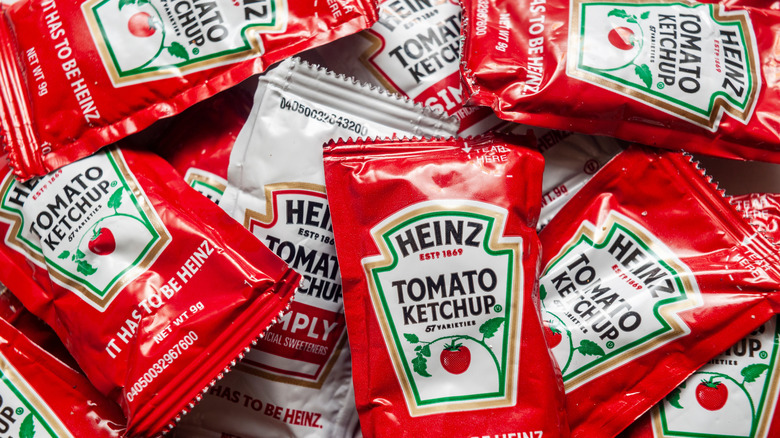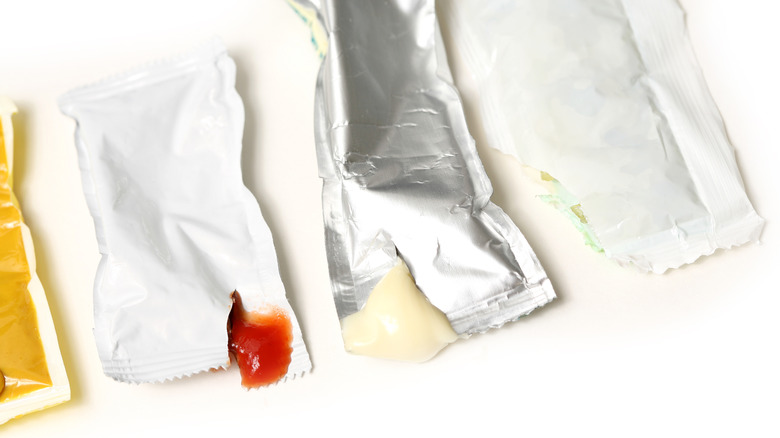Do Fast Food Sauce Packets Expire?
If you opened up a drawer in your kitchen and a pile of Taco Bell mild packets came out, we wouldn't judge you. Stocking up on unused condiment packets is something all fast food lovers have done at some point, whether they're leftover from the time you ordered In-N-Out's secret menu Flying Dutchman or McDonald's classic hamburger. But more often than not, they end up sitting around longer than one intends for them to. Beware, as these sauces do generally expire.
Now you won't usually find a clear-cut expiration date on the packet's label. It would more likely be found on the bulk box that holds all these packets and gets sent to the restaurant, which goes unseen by the customer. A good rule of thumb to follow is that most of these sauces, such as ketchup, mayonnaise, barbecue sauce, mustard, and salad dressing, usually last for up to a year at most if stored properly in a cool, dark environment. Once that timeline has approached, though, its optimal flavor is likely to decline and you should start to be wary of using them.
Signs to toss your fast food sauce packet out
It's also possible that your condiment packet will show signs of spoilage even before the one-year mark hits. These sauces typically come in a tightly sealed package of plastic and foil in order to keep out light, humidity, and air. But once you notice the packet is damaged or puffing up and expanding, that's a cue to throw it out.
A change in the sauce's smell, texture, or color is another indicator the condiment has gone bad. It's not necessarily guaranteed that you'd get sick by consuming the product in this state, but regardless of whether you do or not, it's probably not going to taste as great as it once did. If the flavor of your fast food sauce packet tastes off in any way, it's better not to risk further consumption. So next time you head out for some fast food french fries, reconsider if you actually need to bring that many packets to-go and instead grab just the right amount of sauce.

